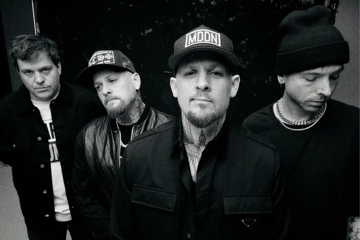'99% Of People Will Say 'Amy' Doco Is Very Honest'
'Amy' May Not Be Comfortable For Everyone

Amy could be this year’s saddest film. British director Asif Kapadia, whose last hit documentary, Senna, centring on Formula One legend Ayrton Senna, impressed Universal Music UK enough to pitch Amy to his team, searched for the woman behind the music, celebrity, drink, drugs and beehive. “I really enjoy doing docs — they’re tough, but you hope you can make a difference,” Kapadia explains. The North Londoner’s research was assiduous, Winehouse’s tale told through video footage, both archival and private, and her songs. Kapadia also interviewed key players in her life — family, friends, lovers, medical professionals, industry types and colleagues, including producers Mark Ronson and Salaam Remi.
“I’ve never seen somebody who was so skinny always doing interviews in restaurants. It felt like kinda hiding a secret in public.”
In Amy, Kapadia acknowledges Winehouse’s eating disorder, a contributing factor to her 2011 death at 27 from alcohol intoxication, and ‘stunt eating’. “I’ve never seen somebody who was so skinny always doing interviews in restaurants. It felt like kinda hiding a secret in public.” Winehouse, formerly voluptuous, had been body-bullied by gossip mags. The admirably objective Amy ultimately holds a mirror to the wider culture, critiquing the media — and music biz. “One of the worries when we first started making the film was, is it too soon?” Kapadia says. “[But] I’m really glad we did do it because actually my feeling was this was a story about the world that we live in now. Why wait ten years to make that film? It felt like it was relevant.” Amy shows Winehouse’s comical side — yet underscores the rawness of her writing, Kapadia describing Rehab as “a massive cry for help”. “I think all of the clues to her life are there in the lyrics. She knew what was going on.”
Nearly everyone in Winehouse’s orbit came on board — even rapper pal Mos Def. Kapadia was most relieved at Remi’s participation: “He doesn’t talk to anyone.” Still, not everybody is happy with Amy. Winehouse’s beloved father Mitch, who’s depicted as cavalier, opportunistic and fame-struck, charges it has “no balance”. Kapadia confirms some editing. (“The film was longer at that point, anyway, and we needed to make it shorter.”) Beyond that? “I would say 99% of the people have all said it’s very honest and they’re happy with it — even if they don’t come out of it well. But some of them won’t say it on the record, they’ll say it off the record that the film is honest. We did a lot of homework, we did a lot of research, we spoke to a lot of people — and, because we used archive footage, we’re just showing you what was going on. It may not be comfortable for everyone, but we’re not pointing a finger at any single person — it’s much more complicated than that. But this is what was going on around her life.”
Don't miss a beat with our FREE daily newsletter







